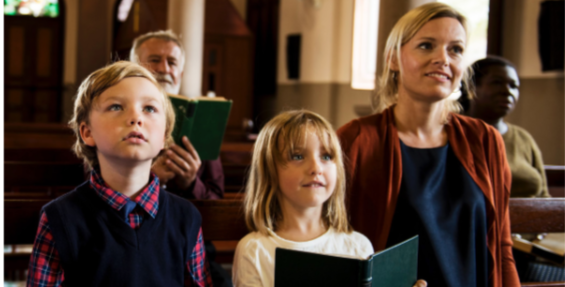Many people want to connect with a community, grow spiritually, and find guidance in life. Non-denominational church meetings provide a welcoming place for anyone, no matter their background or past experiences. Unlike churches tied to a specific denomination, these meetings focus on teaching the Bible and fostering a sense of belonging.
They offer a space where people can worship freely, learn together, and support one another. Attending non-denominational church meetings can bring both personal growth and meaningful relationships.
1. Everyone is Welcome
Non-denominational church meetings open their doors to everyone without asking about your past or religious history. People feel accepted regardless of age, race, or previous church experience. This inclusive environment allows attendees to ask questions and learn without fear of judgment.
When people feel welcomed, they can focus on growing spiritually and building meaningful connections with others. Many find comfort knowing they can attend a church without worrying about fitting into a strict set of rules or traditions.
2. Focus on Practical Teachings
These church meetings often focus on practical life lessons from the Bible. The messages relate to everyday challenges, such as relationships, work, or personal struggles. Leaders explain concepts clearly and show how to apply them in real life.
This approach makes the teachings easy to understand and useful. Attendees leave with guidance they can use immediately, rather than abstract ideas that are hard to relate to. By learning practical lessons, people can grow in faith while improving their daily lives.
3. Strong Sense of Community
These non-denominational church meetings create a strong sense of community among attendees. People come together to worship, pray, and support each other through difficult times. Small group meetings, volunteer activities, and social events help members form close relationships.
This community offers encouragement and accountability, which helps individuals stay committed to personal growth. Many people find that the friendships formed in these churches become an important part of their lives, offering support beyond the weekly meetings.
4. Freedom in Worship
Worship in non-denominational churches is often more flexible and personal. Attendees can participate in music, prayer, and discussion in a way that feels natural to them. The services may include modern music, contemporary teaching styles, or interactive activities that engage everyone.
This freedom allows people to worship with sincerity and enjoy a meaningful connection with God. Many find this approach refreshing compared to traditional services, as it emphasizes personal experience rather than strict ritual.
5. Opportunities for Personal Growth
Attending non-denominational church meetings encourages personal growth in many ways. People can explore their faith at their own pace and ask questions without fear. The supportive environment allows individuals to develop leadership skills by volunteering or joining study groups.
Over time, attendees gain confidence in their beliefs and a deeper understanding of spiritual principles. This personal growth often extends beyond faith, influencing how people interact with others and approach challenges in life.
Conclusion
Non-denominational church meetings offer a welcoming, practical, and supportive environment for anyone seeking spiritual growth. They provide an inclusive space where people can learn, worship freely, and build strong relationships.
By attending these meetings, individuals gain guidance for daily life, experience meaningful community, and grow personally and spiritually. Whether someone is new to church or seeking a fresh approach, non-denominational meetings offer valuable opportunities to connect with faith and others in a natural and welcoming way.



